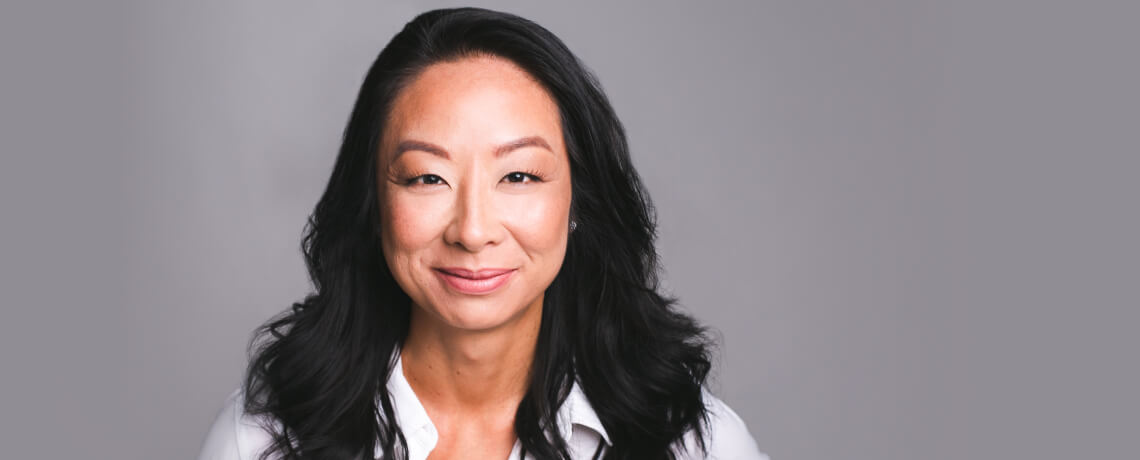
- Author: Nina Hendy
- Posted: October 5, 2020
Creating your own blue ocean with data
Data-driven decisions can empower CFOs to reimagine the future.
By Nina Hendy.
“Data-driven insights are like gold, they give you the power and confidence to make decisions and a seat at the table and make decisions with confidence, and you don’t need 20 30 years of experience to earn that trust,”
Companies must banish surveys and polls and instead turn to data to drive business decisions, according to a leading data translator.
As part of the CFO Lunchtime Live Webcast, economist and data strategist Elisa Choy explained that data allows companies to make faster and better decisions without losing sleep about it.
The session formed part of the trans-Tasman, ‘Lunchtime Live’ by CFO Series, sponsored by Adaptive Planning, heard that data can enable companies to predict what the future will hold and help businesses reimagine their future using data.
Choy heads up Australia’s first AI-powered strategic market research agency, Maven Data, which uncovers strong narratives for brands. She uses big data and AI to translate human behaviour and bring to life an expert lens on the world and business.
She’s fanatical about turning data into better decisions to help organisations make confident decisions and navigate the sea of constant change, such as Covid-19.
Choy spent 20 years in corporate and executive roles, and is now using her experience across a range of industries including ASX companies to present intelligent insights to drive business decisions. And she’s adamant that data is fun.
She has worked in the belly of the country’s largest supermarket chain, Woolworths to consider product placement to drive greater sales in 2018.
And she has tapped into market data to understand how much brand affinity Australians had left in Network Ten hit series MasterChef before it ousted the show’s three previous judges. She’s even predicted the winner of The Voice two years in a row.
“Data-driven insights are like gold, they give you the power and confidence to make decisions and a seat at the table and make decisions with confidence, and you don’t need 20 30 years of experience to earn that trust,” Choy says.
CFOs need to remember that we’re all surrounded by oceans of data, with 90 per cent of the world’s data has been created in the last two years, she says. “We are amassing more and more data from actions, behaviours and events that are logged in the ether of the internet, which gives us the ability to see our icebergs.”
It sounds simple, but so many businesses have hit icebergs in the last year or two. Particularly big retail brands like Toys R’ Us, kikki.K and Jeanswest, which weren’t able to spot the changes in the market and make swift decisions at the right time, she says.
It’s proof that there’s no point polishing your silverware in business and not pay attention to the market around you, she says.
“So often I see people trying to understand the market by using traditional methods based on surveys, polls and focus groups which are based on opinions of people, which is limited in size, costly, slow, and biased and isn’t going to give them the answers they want,” she says.
McKinsey research reveals that businesses that leverage customer behaviour insights outperform their peers by 85% in sales and 25% in gross margin, she says.
“But are you going to turn to your traditional methods, or widen your lens and use market data (on the internet) to uncover insights to make your business relevant again? Businesses that are irrelevant, die.”
“We don’t know what we don’t know, so how are you going to navigate your sales and adjust them quickly in this period of change?” she asks.
Right now, Covid-19 presents an opportunity to uncover what has changed in your market and identify opportunities. Widening your lens using the right data (ie. Market data) will allow companies to bounce back faster, and even create their own blue ocean, Choy says.
Companies should ask themselves, in this order:
- What is the right question?
- What is the right data?
- What is the right method?
Contemplating these questions would enable companies to consider how they could react by asking the right question and discovering the answer with the right set of data, she says.
Cirque Du Soleil is a classic example. The entertainment group set out to reimagine the classic circus market when launching 20 years ago, realising that the circus was no longer relevant, suffering from declining patronage.
“The market had moved on, but the product had remained the same, becoming less and less relevant. But by widening the lens on the traditional circus, they repackaged it as a new product to make it relevant again, in turn creating their own blue ocean by outstripping the competition,” she says.








